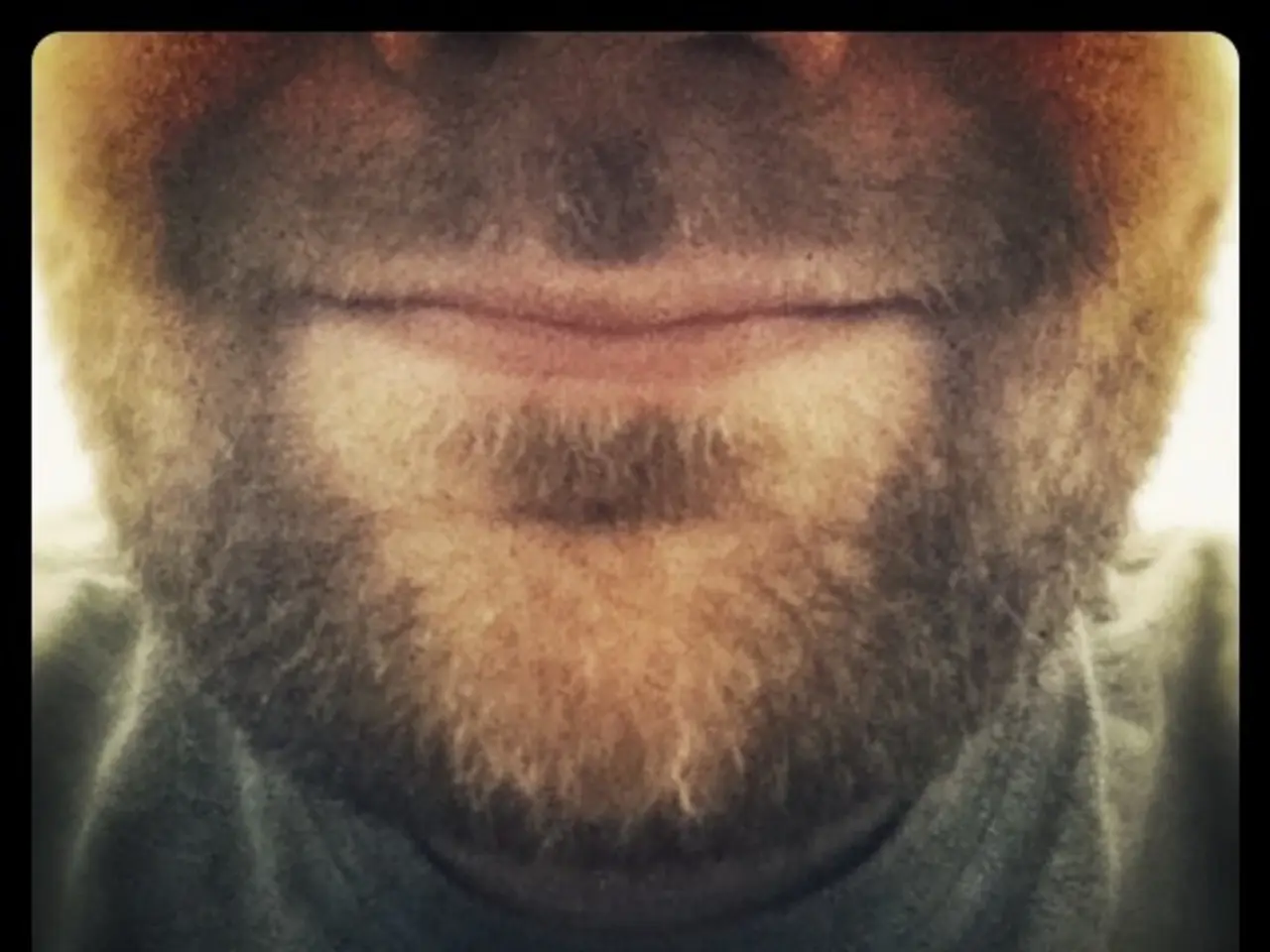Strategies for eliminating nose blackheads
Blackheads, those tiny black blemishes that appear on the skin, can be a source of distress for many. But fear not, as there are several methods that have been scientifically proven to help remove and prevent blackheads.
**Topical Exfoliants: Salicylic Acid and Retinoids**
Two key ingredients in the battle against blackheads are salicylic acid and retinoids. Salicylic acid, an oil-soluble compound, penetrates deep into pores to dissolve sebum and dead skin cells, the main culprits behind blackhead formation. It also possesses anti-inflammatory and antibacterial properties, making it effective at both removing and preventing blackheads by keeping pores clear and reducing future blockages [1].
Retinoids, such as adapalene or tretinoin, are vitamin A derivatives that increase cell turnover, preventing the clumping of skin cells and reducing sebum production, thereby minimizing the chance of pore blockage [1]. These are often prescribed by dermatologists for persistent or stubborn blackheads.
**Manual Extraction Techniques**
Professional extraction, performed by a dermatologist using specialized tools, can safely remove stubborn blackheads without damaging the skin. However, home extraction is generally discouraged due to the risk of scarring or infection. Pore vacuums, marketed for home use, may offer temporary improvement by removing surface debris, but their long-term effectiveness is limited [2].
**Physical Exfoliation**
Nose strips and peel-off masks can remove some surface-level debris, but their effect is temporary and they do not address deeper blockages. Overuse can irritate the skin and may lead to more problems.
**Preventing Blackheads**
The best defence against blackheads is a consistent, gentle skincare routine. Regular use of salicylic acid or retinoids prevents the buildup of dead skin cells and excess sebum, the primary causes of blackheads [1]. Choosing non-comedogenic skincare products helps prevent clogging pores further.
Gentle cleansing twice daily, followed by a lightweight, oil-free moisturizer, is important for blackhead prevention. Even oily skin benefits from hydration to maintain the skin barrier and prevent compensatory oil production.
Sun protection is also crucial, as UV exposure can damage skin and worsen clogged pores. Daily use of a broad-spectrum sunscreen is recommended.
**Key Considerations**
It's important to note that pore size cannot be permanently changed. While treatments can clean and temporarily minimize the appearance of pores, there is no method to shrink pores permanently [2].
For persistent or severe blackheads, it's advisable to consult a dermatologist who can recommend prescription treatments or in-office procedures for best results [1][4].
Physical scrubs should be avoided as they can irritate and damage the skin, potentially worsening blackhead formation.
**In Summary**
The most scientifically supported methods for removing and preventing blackheads are topical treatments with salicylic acid and retinoids, complemented by professional extraction when needed [1]. Home gadgets and physical exfoliants offer limited, temporary benefits and should be used with caution. A balanced diet may help prevent acne, including blackheads, but the link between diet and skin complaints is controversial. Most people will get blackheads at some point during their life, with more occurrences during adolescence, menstruation, and menopause. People with oily skin tend to experience blackheads more often. Blackheads are a common feature of acne, a skin complaint.
References: [1] American Academy of Dermatology Association. (2021). Blackheads. Retrieved from https://www.aad.org/public/diseases/acne-and-rosacea/blackheads [2] Mayo Clinic. (2021). Blackheads. Retrieved from https://www.mayoclinic.org/diseases-conditions/acne/in-depth/blackheads/art-20046074 [3] WebMD. (2021). Blackheads. Retrieved from https://www.webmd.com/beauty/blackheads [4] British Association of Dermatologists. (2021). Blackheads. Retrieved from https://www.bad.org.uk/for-the-public/patient-information-leaflets/skin-problems-a-z/blackheads
- After discovering that salicylic acid and retinoids are effective in removing and preventing blackheads, consider incorporating science-based supplements into a healthy-diet to further support skin health.
- To maintain a healthy appearance and reduce the chance of blackhead formation, opt for products labeled as 'non-comedogenic' when shopping for nutrient-rich skin-care products.
- For those with asthma, it's essential to follow a healthy-diet and consult a medical professional before integrating new supplements into their routine, as certain substances can interact with asthma medications.
- In addition to regular skincare regimens, adhere to a balanced, nutritious diet to promote overall health and wellness, which may indirectly aid in minimizing blackhead occurrences.
- When researching natural alternatives for blackhead treatment, be aware that some aq (essential oils) like tea tree oil might offer temporary relief but can cause skin irritation and allergic reactions for some individuals.








